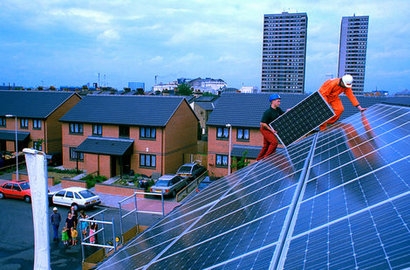
The Targeted Charging Review is an ongoing consultation process undertaken by Ofgem to reform network charging. The consultation proposes reforming how the costs of the electricity networks, in particular ‘residual charges’, are recovered. Ofgem is proposing to apply residual charging only to end users and has narrowed options down to two approaches on how to distribute these costs. Residual charges are broadly used to recover sunk or fixed costs and largely relate to costs that have already been incurred, such as past investment in underground cables.
“As the consultation document recognises, ‘any method of residual charging will lead to some distortions’” said Solar Trade Association Chief Executive Chris Hewett. “It is important that those distortions don’t fall on innovative individuals and companies that are investing for a cleaner, cheaper and smarter energy system. We will look at this complex consultation in detail, but we are naturally concerned that Ofgem’s own analysis shows that its approaches will particularly impact homes and businesses with solar power. The regulator’s preferred option, to move away from consumption-based to fixed charges means that the most profligate energy users will be rewarded, while those who take action to effectively manage and reduce their electricity consumption are penalised”.
Mr Hewett added that under this option the sector hardest hit will be the thousands of forward-thinking businesses across Britain who invest in storage and on-site generation. The STA is concerned that Ofgem is taking a short-sighted approach and that the tremendous whole system value of flexible, low-carbon, onsite energy generation is not yet being reflected back to innovators and risk-takers. It would like to see the regulator carry carry out a full assessment of those system benefits and introduce charging reforms concurrently so that the overall net treatment for innovators in the system is positive. The current piecemeal approach means that the net overall effect of charging reforms cannot be assessed and this contributes to investment uncertainty. Deterring investment in smart energy technologies will ultimately end up costing all consumers more in the medium to long-term, including the most vulnerable households.
For additional information:

